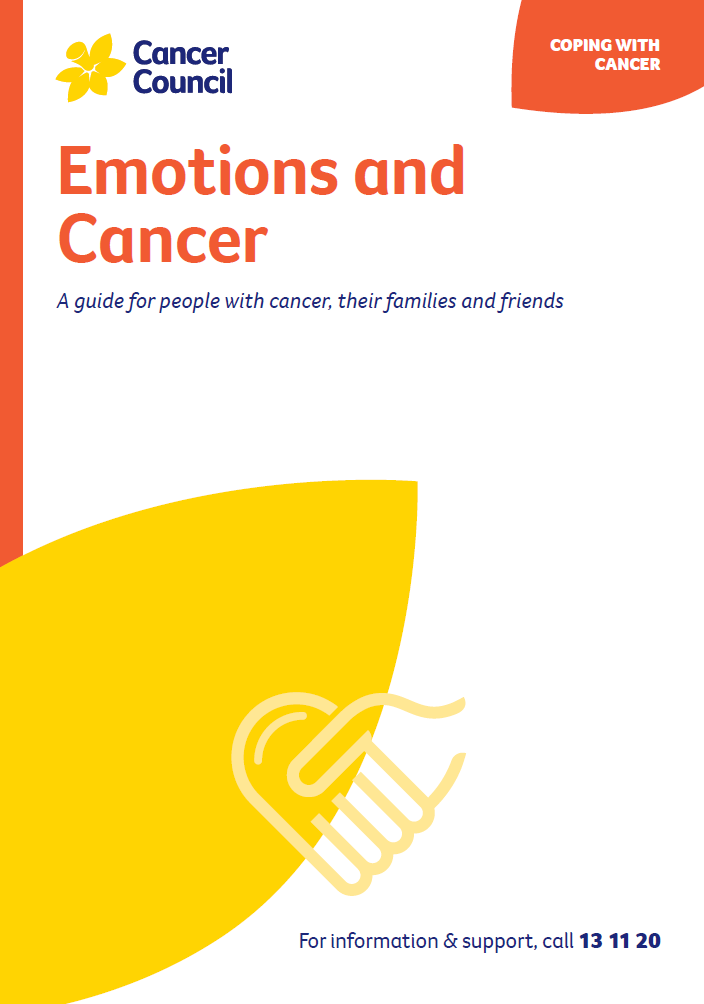- Home
- About Cancer
- Coping with a diagnosis
- Emotions and cancer
- Your coping toolbox
- Using complementary therapies
Using complementary therapies
Learn how complementary therapies can help manage cancer treatment. From relaxation techniques to counseling, these therapies can improve quality of life.
Learn more about:
- Overview
- Relaxation and meditation
- Counselling
- Art therapy
- Listen to our meditation and relaxation podcast
Overview
Complementary therapies, such as relaxation, meditation, massage, art therapy and counselling, are widely used alongside conventional cancer treatments such as surgery, chemotherapy and radiation therapy. Many complementary therapies focus on a mind–body connection. They may offer physical, emotional and spiritual support, help reduce side effects from medical treatment, and improve quality of life.
Relaxation and meditation
These therapies can help reduce stress, anxiety and fatigue, and improve quality of life.
- Relaxation usually includes slow breathing and muscle-loosening exercises to physically and mentally calm the body.
- Meditation involves focusing on a single thing, such as breathing, to clear the mind and calm the emotions.
- Mindfulness meditation helps you to take things one day at a time. It allows you to focus more easily on the present moment, rather than worrying about the past or fearing the future.
- Body-based practices such as yoga, tai chi and qi gong combine a series of movements with breathing and meditation exercises to improve strength and flexibility while reducing stress and anxiety.
- Hands-on therapies such as massage and reiki are available in some cancer centres. In a massage session, the therapist helps release tension by applying pressure to your muscles. In a reiki session, the therapist gently places their hands on or slightly above your body – many people find this calming and relaxing.
Counselling
Through discussions with a counsellor, social worker or psychologist, you can identify problems and explore ways of managing unhelpful thoughts and feelings. Counselling sessions allow you to express your emotions in a safe and supportive environment and learn new coping skills. They can provide an opportunity to talk about thoughts and feelings that you might not feel comfortable sharing with family and friends.
Art therapy
This technique uses visual art (e.g. drawing, painting, collage, sculpture, digital work) to express feelings. It can be done individually or in groups, and some hospitals run programs. You do not need artistic talent to join in or benefit – the focus is on the process of making the artwork, not the end result. An art therapist helps you explore the images you have created to encourage understanding of your emotions and concerns.
Let your doctor know about any other therapies you are using or thinking about trying. Some may not be helpful and could cause problems if used with some medical treatments.
For more on this, see Complementary therapies, or listen to the meditation and relaxation exercises in our Finding Calm During Cancer podcast.
Complementary therapies are used alongside conventional medical treatments, while alternative therapies are used instead of conventional medical treatments. Alternative therapies are unlikely to be scientifically tested, may prevent successful treatment of the cancer and can be harmful. Cancer Council does not recommend the use of alternative therapies as a cancer treatment.
→ READ MORE: Managing your thoughts
Podcast: Meditation and Relaxation
Listen to more of our meditation and relaxation podcast episodes
More resources
Dr Michael Murphy, Psychiatrist, NSW Health, and Conjoint Senior Lecturer, UNSW, NSW (clinical review); A/Prof Anne Burke, Co-Director, Psychology and Allied Health Lead, Cancer, Central Adelaide Local Health Network and The University of Adelaide, SA; Hannah Chen, Psychologist, Cancer Council Queensland; Hazel Everett, Clinical Nurse Consultant, Cancer Services, St John of God Subiaco Hospital, WA; Shona Gates, Senior Social Worker, North West Cancer Centre, TAS; Dr Jemma Gilchrist, Senior Clinical Psychologist, Mind My Health and Crown Princess Mary Cancer Centre, Westmead, NSW; Sandra Hodge, Consumer; Dr Michael Murphy (see above); Caitriona Nienaber, 13 11 20 Consultant, Cancer Council WA; Dr Alesha Thai, Medical Oncologist, Peter MacCallum Cancer Centre, VIC; Alan White, Consumer.
View the Cancer Council NSW editorial policy.
View all publications or call 13 11 20 for free printed copies.

